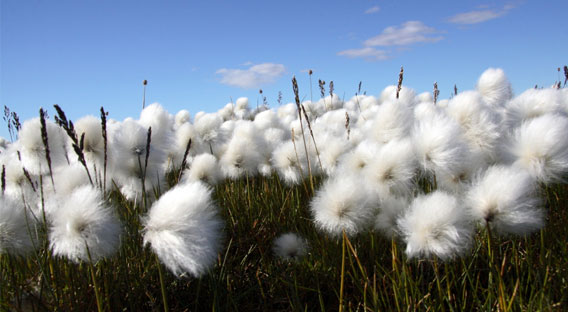Organic Cotton Certificates
The manufacture of organic cotton should be certified by a third party organization. Since the treatment of organic cotton production is different from conventional cotton, it should be regulary controlled, from the production to the distribution process. Third party organizations ensure that the producers are doing the right organic procedures and only using the allowed material for the organic production. There are several numbers of certification organizations and previously every country had their own standards and certification organization.
I. GLOBAL ORGANIC TEXTILE STANDARD (GOTS)
The GOTS (Global Organic Textile Standard) is certified by the dutch Control Union. At the moment the GOTS is the highest level and best certificate for organic cotton certification. It not only controls the ecological process but also social standards.
Here are some manufacturing guidelines for GOTS certified organic cotton textiles: - Safety regulations and machines have to be according to international ISO-standards - In organic cotton manufacturing no organic halogens, no azo-dyestuffs, no chlorine bleaching, and no formaldehyde are allowed and integrated sewage plant are mandatory. - Compliance of ILO ‘labour standards’ und ‘fundamental principles and rights at work’, like free choice of employment and right of cancellation, freedom to form associations and unions, ban of child and forced labour, ban of corporal intimidation, payment of “living wages” (sufficient for food, lodging and cultural activity) - Organic cotton workers work only in official employment contracts - Organic cotton manufacturing is controlled through independent and unannounced inspections, with access to all production areas. - Workers of organic cotton textiles have the possibility to address the certifying agencies through pre-printed forms without knowledge of their supervisors.
II. FAIR TRADE
Fair trade is certified by the Fairtrade Labelling Organisation (FLO-Cert); they certify the product, based on the labour and development standard of the company. Fair trade offers fair conditions for producers, workers, distributors and manufactures and ensures their workingsecurity. Fair trade is concerned about the workers health and wealth at their work environment, they make certain they get proper wages and health cover. Fair trade also forbids the company of using children labour. They attempt to change the workers treatment that happens habitually in conventional production.
Key fair trade principles
1. Market Access for Marginalized Producers
2. Sustainable and Equitable Trading Relationships
3. Capacity Building & Empowerment
4. Consumer Awareness Raising & Advocacy
